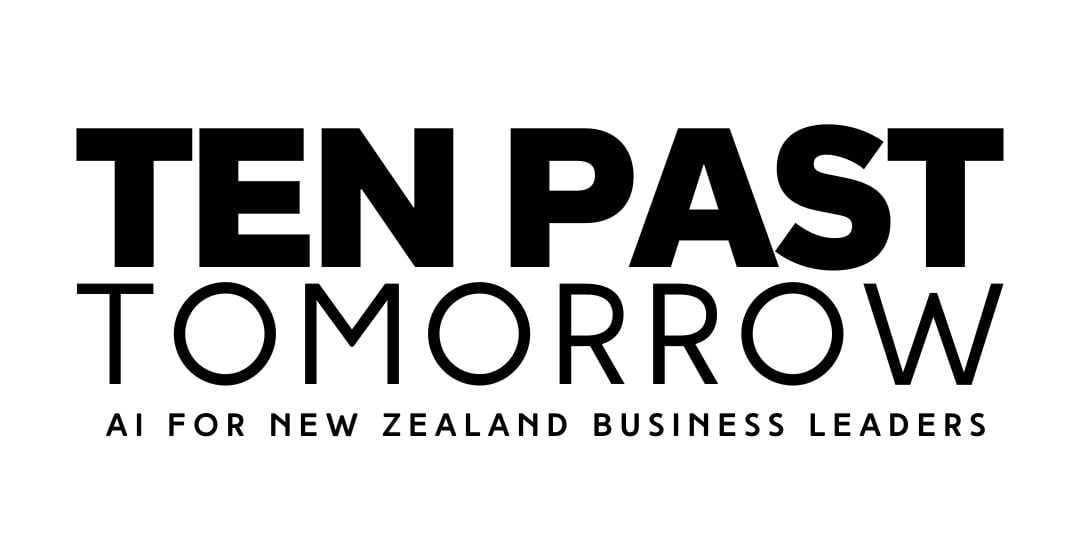Navigating data privacy in AI: Lessons from the US House memo on ChatGPT
For most businesses I’m talking to at the moment, navigating the adoption of artificial intelligence is a little like sailing in uncharted waters.
It's an adventure full of opportunities, yet clouded by uncertainties. Whispers of untold treasures abound, as do dark, mysterious, uncharted regions on the maps.
One of the pivotal aspects of this uncertainty for many NZ business leaders is data privacy.
And if this isn’t currently an AI concern of yours, add it to your list! ;)
In this article, I address some of the main AI data privacy issues, and also provide some clarity to them, by referencing a recent memo that the US House released about their guidelines for usage of ChatGPT.
I know it seems a little strange to use the US Government as a guiding beacon for NZ businesses.
But in this case, given the simplicity they’ve used to address a complex challenge, it strikes me as a useful touchpoint for businesses feeling their way through the dark, attempting to understand the privacy implications of AI technology.
Understanding the US House memo on ChatGPT usage
ChatGPT, in da House
This US House memo shown above, and reported on here, has drawn attention from all quarters.
The memo stipulates that congressional lawmakers and staff are now limited to using ChatGPT Plus, the paid version of the chatbot, due to its enhanced privacy features.
Government offices can only use the product for “research and evaluation” with privacy settings enabled and are forbidden from pasting “any blocks of text that have not already been made public” into the service.
Many have been asking why the memo specifically singles out ChatGPT and exclude other large language models like Bard, Bing, and others?
I think a plausible explanation could be the transparent data sharing policies by OpenAI regarding ChatGPT, which might be perceived as more dependable compared to those of its counterparts.
Nevertheless, putting aside the preference for OpenAI’s product, I think the US House’s memo actually gives us some essential insights into the regulatory preferences and industry standards that we might expect to show up in New Zealand in the near future, both in the public and private sectors.
Data privacy concerns in AI adoption
If you’re anything like most New Zealand business leaders I’m talking to at the moment, data privacy is a central concern to your AI adoption plans.
The concept of AI has ushered in an era of unprecedented possibilities, but the accompanying data privacy concerns have put many businesses into a holding pattern.
Companies are understandably wary about potential pitfalls in data privacy and security, as well as concerns about AI “hallucinations”.
As I watch the early AI adopters in the business world, I’m more and more confident that these challenges, while significant, are not insurmountable.
The rapid progress in technology and regulatory frameworks indicates that clarity on these issues might arrive sooner than expected, turning these challenges into manageable risks.
Data privacy vs Competitive advantage
Right now, businesses are grappling with a classic dilemma: to embrace AI technologies like ChatGPT and risk potential data privacy issues, or to avoid it and risk falling behind in the competitive landscape.
This is a predicament that's not only felt at the organizational level but also among employees. When AI tools are banned in the workspace, employees miss out on gaining valuable experience with these transformative technologies.
However, the issue is not as binary as it may seem.
With the right strategies and guidelines in place, it's possible to balance data privacy concerns with the adoption of AI, allowing businesses to stay at the forefront of technology without compromising on security.
Simple guidelines for a complex challenge
When it comes to the tricky task of AI data privacy, the US House memo provides simple guidelines. And it is this simplicity that attracts me to it.
Even for us here in New Zealand, the memo offers a clear and straightforward roadmap for using AI safely.
To me, what makes the memo special is how it takes a complex issue and makes it easy to understand.
If your business follows the guidelines suggested by the US House, you provide your team with an easy-to-follow plan to use AI wisely and in line with the latest ideas on data privacy.
By using the same sort of guidelines in your business, you can make it easier to use AI with confidence. The memo breaks down the problem, helping your team follow clear and robust rules on data privacy.
At the end of the day, it's about understanding the challenges and making the most of the opportunities AI offers, while also making sure your data stays safe.
The US House memo, with its clear and simple language, is a great tool to help you do that.
Why is this all relevant?
As a New Zealand business leader, you might be wondering why this is all relevant.
The fact is, while there aren't yet any legal penalties for incorrect usage of data by businesses using AI technology in New Zealand, they're on the horizon.
And once instituted, I expect these penalties will likely be heavy.
Furthermore, data entered into many AI tools often serves as training data for the AI system itself (although importantly, as noted by the US House memo, this concern is negated by using the Plus version of ChatGPT).
The numerous unanswered questions about how AI platforms use and share your data, add another layer of concern for us as business leaders.
With all these factors in mind, I just simply see it as prudent business practice to develop policies for responsible AI usage among your staff teams.
Making it up as we go along
AI legislation is clearly struggling to keep pace with the rate of AI adoption.
We're all pioneers on this frontier, constructing the rules of engagement as we go.
Given the absence of definitive best practices around data privacy, the onus is on us to look for emerging, clear, and straightforward guidelines for safe AI use.
The US House memo outlining safe ChatGPT Plus use is a good example of this.
It serves as a beacon, shedding light on how to navigate the somewhat murky waters of data privacy while fully harnessing the potential of AI.
We are all navigating this new territory together, learning, and adapting as we go. So, let's use the best tools and examples currently at our disposal to make this journey safer and more productive for our businesses. In my opinion, the US House memo falls into this category.
Conclusion
The integration of AI into our businesses is an exciting journey filled with significant opportunities, and also challenges. It would be naive of us to ignore these challenges.
Data privacy is a crucial aspect of this journey, and the US House memo on ChatGPT usage offers valuable insights into a way to manage this complex challenge, simply and effectively.
By staying informed about global AI-related policies and guidelines and adhering to stringent data privacy standards, New Zealand businesses can more confidently chart their path in the world of AI.
By doing so, as early adopting business leaders, we’ll be in a good place to leverage the transformative potential of AI, while also mitigating the risks associated with data privacy.







